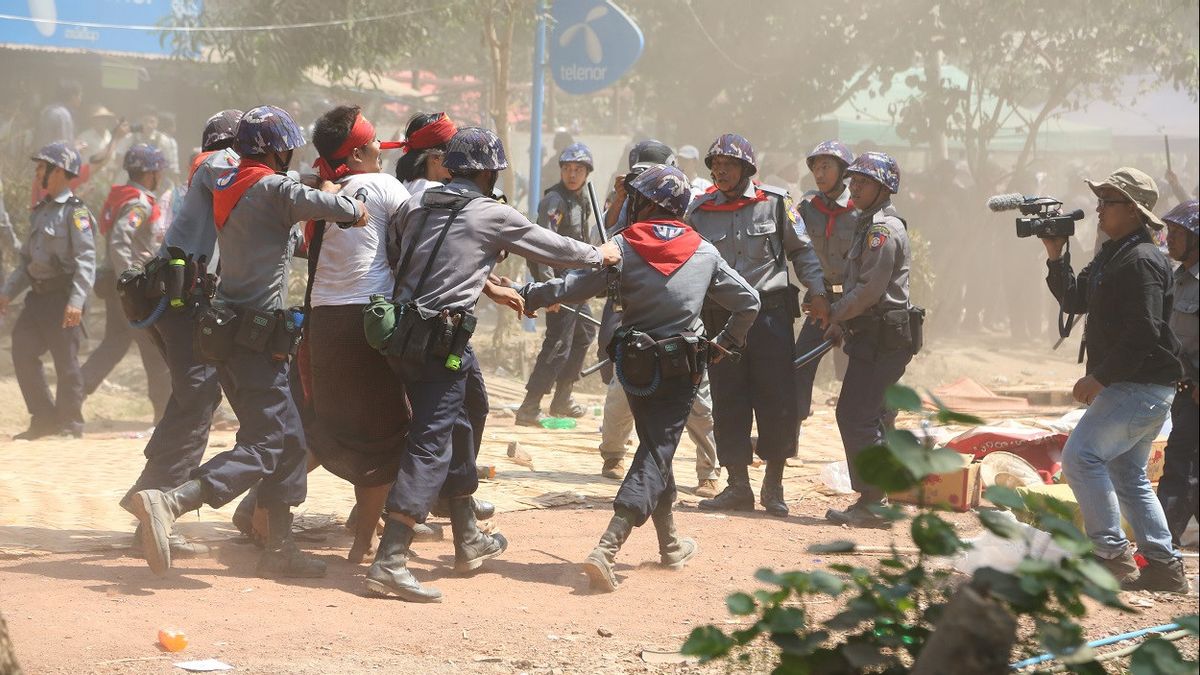JAKARTA - Every day for the past three months, an average of six or seven families in Myanmar have posted notices in state-owned newspapers severing ties to sons, daughters, nephews, nephews and grandchildren who openly oppose the ruling military junta.
Notifications began appearing in such numbers in November after the army, which seized power from Myanmar's democratically elected government a year ago, announced it would expropriate opponents' property and arrest people who provided shelter to protesters. After that, the army carried out dozens of raids.
Lin Lin Bo Bo, a former car salesman who joined an armed group opposed to military rule, was one of those disowned by his parents in about 570 notices reviewed by Reuters.
"We declare that we do not recognize Lin Lin Bo Bo, because he never listened to his parents' will," said a notice posted by his parents, San Win and Tin Tin Soe, in the state-owned newspaper The Mirror in November, citing citing Reuters 7 February.
Speaking to Reuters from the Thai border town, where she lives after fleeing Myanmar, the 26-year-old said her mother had told her she didn't admit it after soldiers came to their family home to look for her. A few days later, she said that she cried when she read the notice in the newspaper.

"My colleagues tried to convince me it was inevitable for the family to do that under pressure," he told Reuters. Contacted by Reuters, his parents declined to comment.
Targeting the families of opposition activists was a tactic used by the Myanmar military during the riots of 2007 and the late 1980s but has been used much more frequently since the February 1, 2021 coup, according to Wai Hnin Pwint Thon, senior advocacy officer at a Burmese human rights group. Campaign UK, which uses the old name for the former British colony.
Openly rejecting family members, who have a long history in Myanmar culture, is one way to respond, said Wai Hnin Pwint Thon, who says he sees more such notices in the media than in the past.
"Family members are afraid of being involved in a crime. They don't want to be arrested, and they don't want to get into trouble," he explained.
A military spokesman did not respond to Reuters questions for this story. Commenting on the notice at a press conference in November, military spokesman Zaw Min Tun said people who made such statements in newspapers could still be prosecuted, if proven to support opposition to the junta.

Hundreds of thousands of people in Myanmar, many of them young, have taken to the streets to protest the coup a year ago. After a crackdown on demonstrations by the army, some protesters fled abroad or joined armed groups in remote parts of the country. Known as the People's Defense Forces, these groups were widely allied with the ousted civilian government.
Over the past year, security forces have killed about 1,500 people, many of them demonstrators, and arrested nearly 12,000, according to the Assistance Association for Political Prisoners (AAPP), a monitoring group. The military said the figures were exaggerated.
Lin Lin Bo Bo said he hopes to one day be able to go home and support his family. "I want this revolution to end as soon as possible," he told Reuters.
Such reunification is possible for some families torn apart in this way, according to Wai Hnin Pwint Thon, rights activist.
"Unless they get it right with lawyers and wills, then these things don't really count legally," he said of the disclaimer notice. "After a few years, they can go back to being a family."
The Myanmar Coup. VOI editors continue to unify the political situation in one of the ASEAN member countries. Civilian casualties continued to fall. Readers can follow news about the Myanmar military coup by tapping this link.
The English, Chinese, Japanese, Arabic, and French versions are automatically generated by the AI. So there may still be inaccuracies in translating, please always see Indonesian as our main language. (system supported by DigitalSiber.id)








